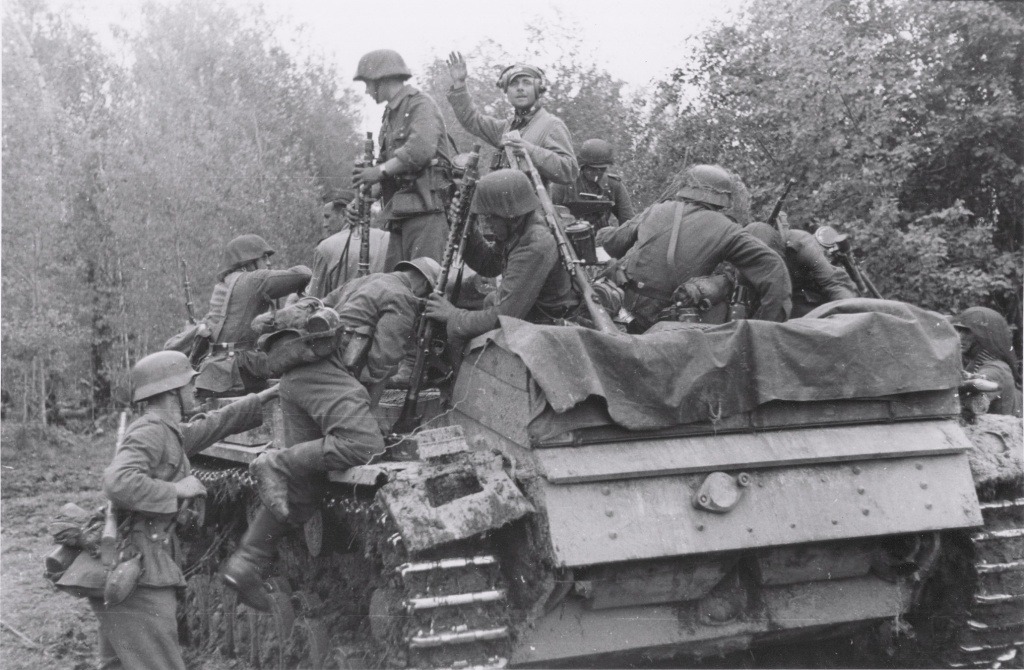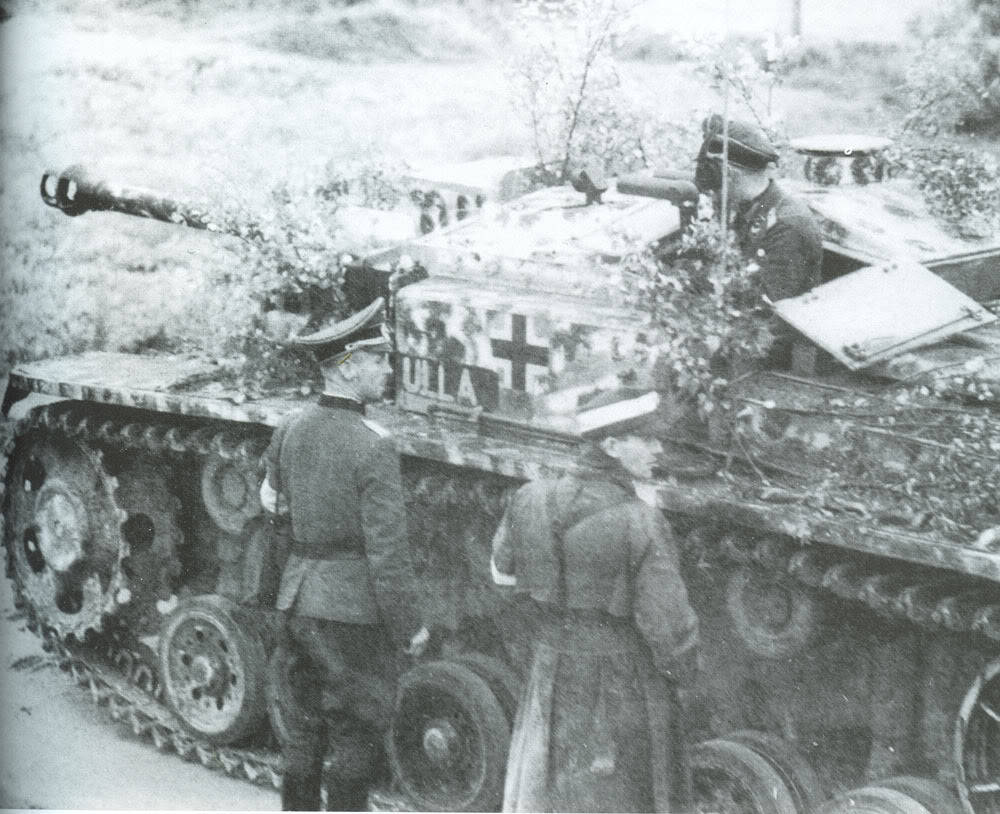|
|
The allies had better leadership, because their decisions were made by qualified generals, but for the Germans, Hitler was making the most important decisions. That was a huge advantage for the allies. For example Hitler never allowed strategic/tactical retreats followed up by counterattacks, which were the thing that the Germans were good at.
True and the germans adopted a mobile and elastic defence after kursk and north africa . |
|
|
|
Also before Kursk there was a failure in capturing Moscow and that was not good for the germans because moscow was a main objective of the campaign , if not the only main objective .
Winter played a big part too off course . |
|
what went wrong in the east for the germans ? What was the turning point ? Stalingrad ? Kursk ?
Personally i think the germans losing first Stalingrad meant that the german army was no longer invincible .
By the Battle of Kursk the germans had low numbers of serviceable tanks and low anti tank guns .
Germans
Operation Citadel:
780,900 men
2,928 tanks
9,966 guns and mortars
2,110 aircraft
Soviets
Operation Citadel:
1,910,361 men
5,128 tanks
25,013 guns and mortars
2,792 to 3,549 aircraft
afterwards it germans adopted mobile defence and elastic defence while the soviets push deep in the rear areas of the germans with combined arms coordination .
|
|
|
Cromwell. The cheapness allows for really quick veterancy gain. It's pretty fast and good for crushing with decent penetration and reload.

Cromwell Mk IV
i like the cromwell too but you cant put a 50 cal or a bren on it . |
Maybe. But I think that those "moving variables" have a tendency to move against Hitler more than for him. He had the jump on the world in terms of aggression and doctrine. But in every case the world was adapting to that new environment and perhaps at a faster rate than the Germans.
The Russians were already moving towards total war footing as where the Americans. Hitler on the other hand had a nation to appease. The Germans were supportive and exuberant because he was a WINNER. Don't forget that while the Russians, the Brits and the Americans were industrializing a workforce and mobilizing their women into it as well, working 3 shifts sometimes 7 days a week, the Germans were expecting that this was their time to indulge in the riches lifted from the conquered countries. people were starting to move to plantations in the east that would be worked by slavic minions.
By contrast the British in 1940 were already outproducing German aircraft. They even had an aircraft that was specifically designed to be made by a now underutilized and large industry of smaller furniture factories. This sounds whacky, like the iceberg aircraft carrier designs and the potato throwing naval anti-air weapons (true things, look them up), but in fact it created one of the fastest and most versatile planes of the war, the DeHavilland Mosquito (8,000 built. In furniture shops.)
The Germans wouldn't go on total war footing until 1943.
The Battle of Britain was a major flaw in the nazi regime , i dunno if Goering was the full culprit , i dont think so . I think he was being affected , guided and influenced by the wehrmacht and by the nazi party by that time . Maybe if the army attacked from land while they attacked from the air , the results could be diferent . |
|
For me its the Sherman Easy 8 with very good armour , a long cannon and a 50 cal on top of it . Great for big tank engagements and sweeping off infantry . And if you support that with 3 or 4 rifle squads equipped with bazzokas , its a game winner . |
They couldn't.
Sealion could never have worked. There is no "blitzkrieg" when you have to tow barges at 5-6 knots across 30-100 miles of open water and then have troops with no amphibious doctrine or training embark on contested beachheads. The British had lost much of their Army, but their Navy and Air Force was completely intact and after Norway was even stronger than that of the Germans. (The Battle of Britain was never a close thing.)
Invasion of Russia could not have worked. The whole plan rested on wholesale defeat of the Red army in the first 5-6 weeks and the first 500-700 kilometers of advance. They executed that brilliantly but never considered winning in an environment where the Russians could rebuild an army at a rate of half a million men a month. Remember the whole "kick the door in and the whole hose comes down" concept. it was wrong.
Dunkirk would not have made a difference. Of the 330,000 men rescued almost half were Belgian and French and returned to their countries. No material was saved. But it really wasn't needed when there was no way the Germans could effectively land, reinforce and supply an expeditionary force let alone a real invasion force.
I believe the US would definitely have entered the war. after a long period of isolationism the sentiments were moving strongly against Germany. The growing knowledge of the nature of the Nazi occupations were starting to get out. They were just looking for an excuse. Pearl Harbor didn't mean they had to go to war against Germany as w3ell as Japan, and Hitlers declaration of war was not what tipped the scale. The US was already gearing for war. Practically every major weapon system used by the US (including the B-29) was already on the drawing board or being prototyped by Dec. of 1941 and the armed forces were already building their numbers, though not at the same rate yet.
Maybe if the germans had waited before attacking russia on a full scale attack ( germany was ill prepared for it but still went on and did a good job ) they could delay or even prevent , at least a few more years , the nazi regime from being subdued by the allies . |











 cblanco ★
cblanco ★  보드카 중대
보드카 중대  VonManteuffel
VonManteuffel  Heartless Jäger
Heartless Jäger 